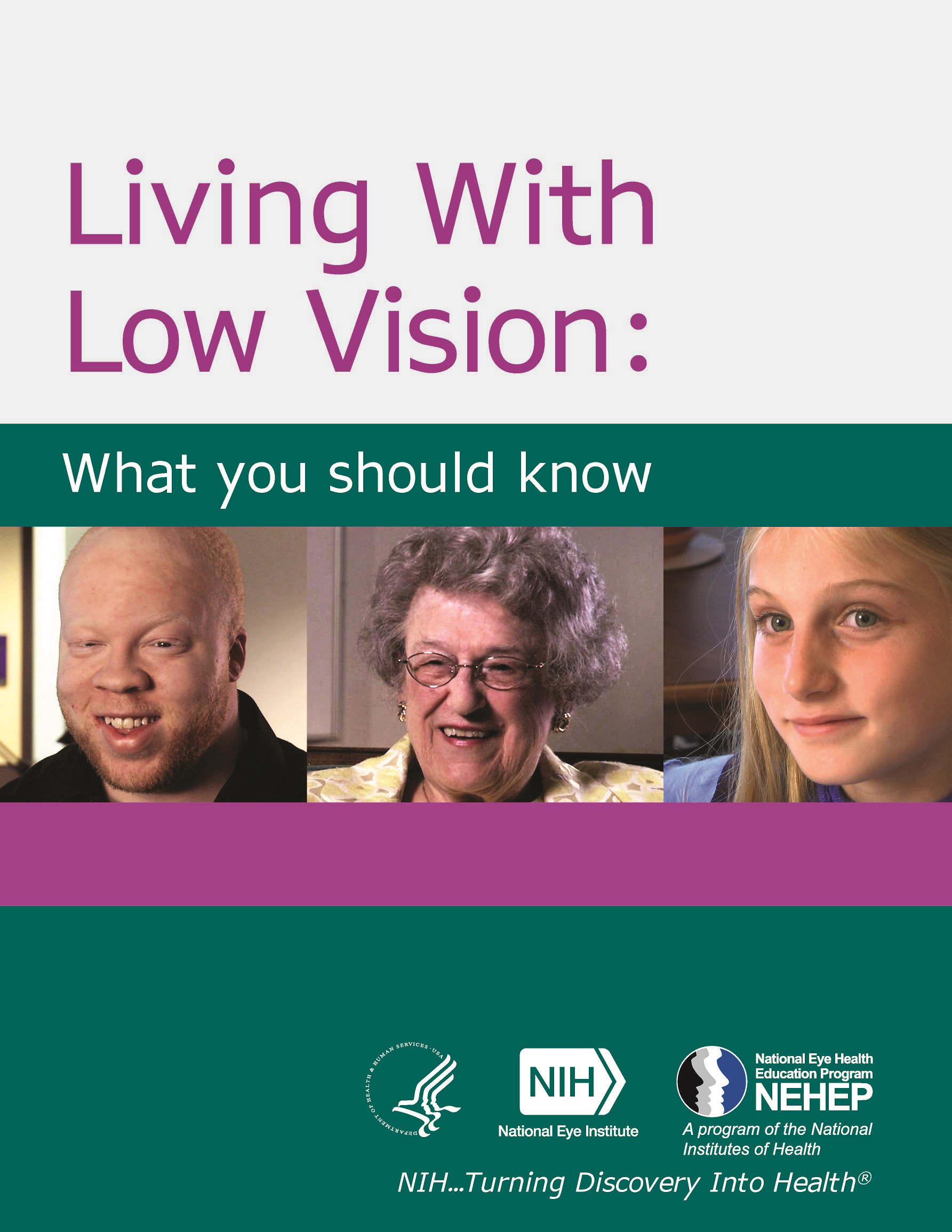Health Capsule
Find Help for Low Vision

For people with low vision, everyday activities can be a challenge. People with low vision don’t see well even with standard glasses, contact lenses, surgery, or medicine. They may have trouble reading traffic signs or recognizing faces. It can be challenging to match clothes of different colors. The lighting in a room may often seem too dim.
Low vision can be caused by an eye injury or a disease such as glaucoma. Glaucoma damages the nerves that carry visual signals from the eye to the brain. Millions of Americans have low vision. Most are over age 65.
If you have a problem with your vision, you should see a doctor right away. The sooner an eye problem is detected and treated, the greater your chance of keeping your remaining vision.
Some eye doctors specialize in helping people with low vision. These specialists can help you cope with vision loss. They can teach you new ways to do everyday tasks. They can also offer training and devices to help with reading, cooking, shopping, and other activities.
“A vision rehabilitation plan helps people reach their true visual potential when nothing more can be done from a medical or surgical standpoint,” says Dr. Mark Wilkinson, a low vision specialist at the University of Iowa Hospitals and Clinics.
NIH offers many resources to help people with low vision. A 20-page booklet Living With Low Vision: What you should know and companion video feature inspiring stories of people living with low vision. You can find these and other resources at www.nei.nih.gov/lowvision.
NIH Office of Communications and Public Liaison
Health and Science Publications Branch
Building 31, Room 5B52
Bethesda, MD 20892-2094
Contact Us:
nihnewsinhealth@od.nih.gov
Phone: 301-451-8224
Share Our Materials: Reprint our articles and illustrations in your own publication. Our material is not copyrighted. Please acknowledge NIH News in Health as the source and send us a copy.
For more consumer health news and information, visit health.nih.gov.
For wellness toolkits, visit www.nih.gov/wellnesstoolkits.




